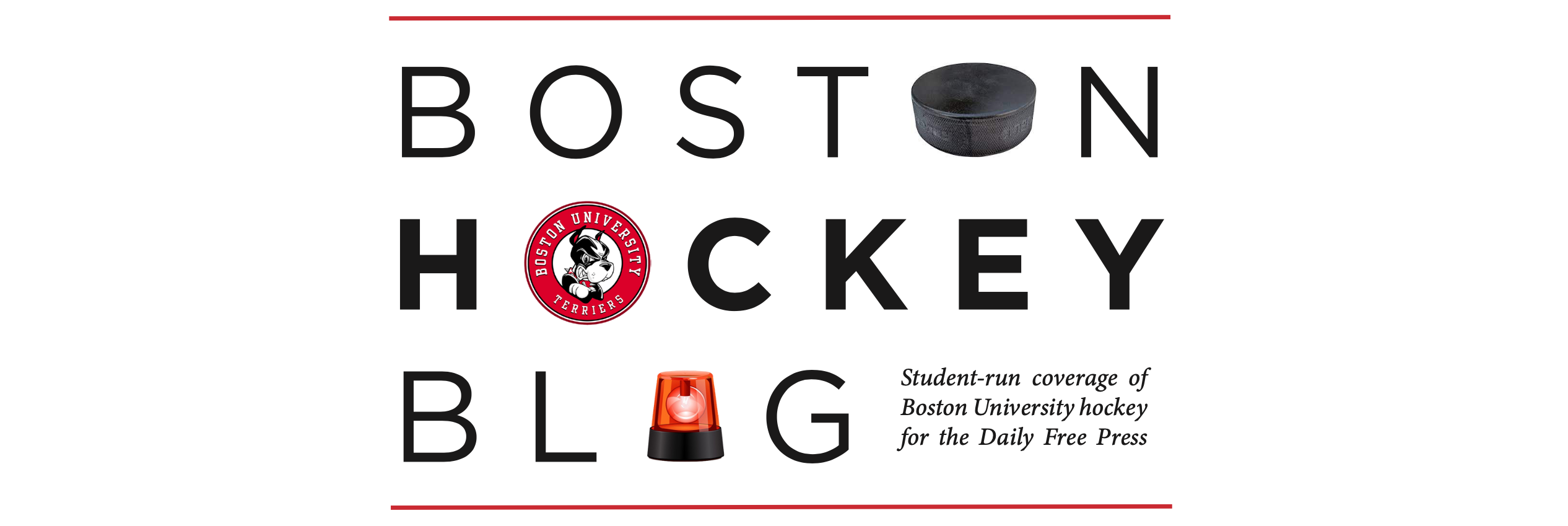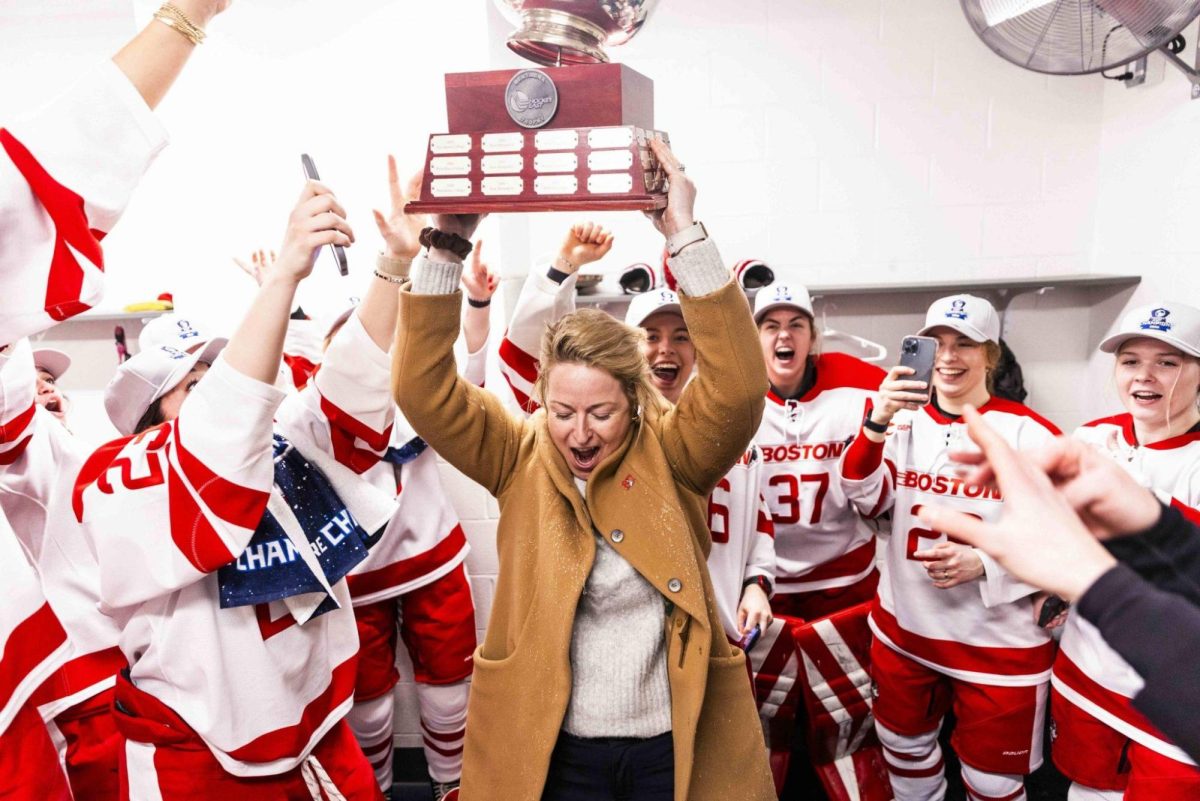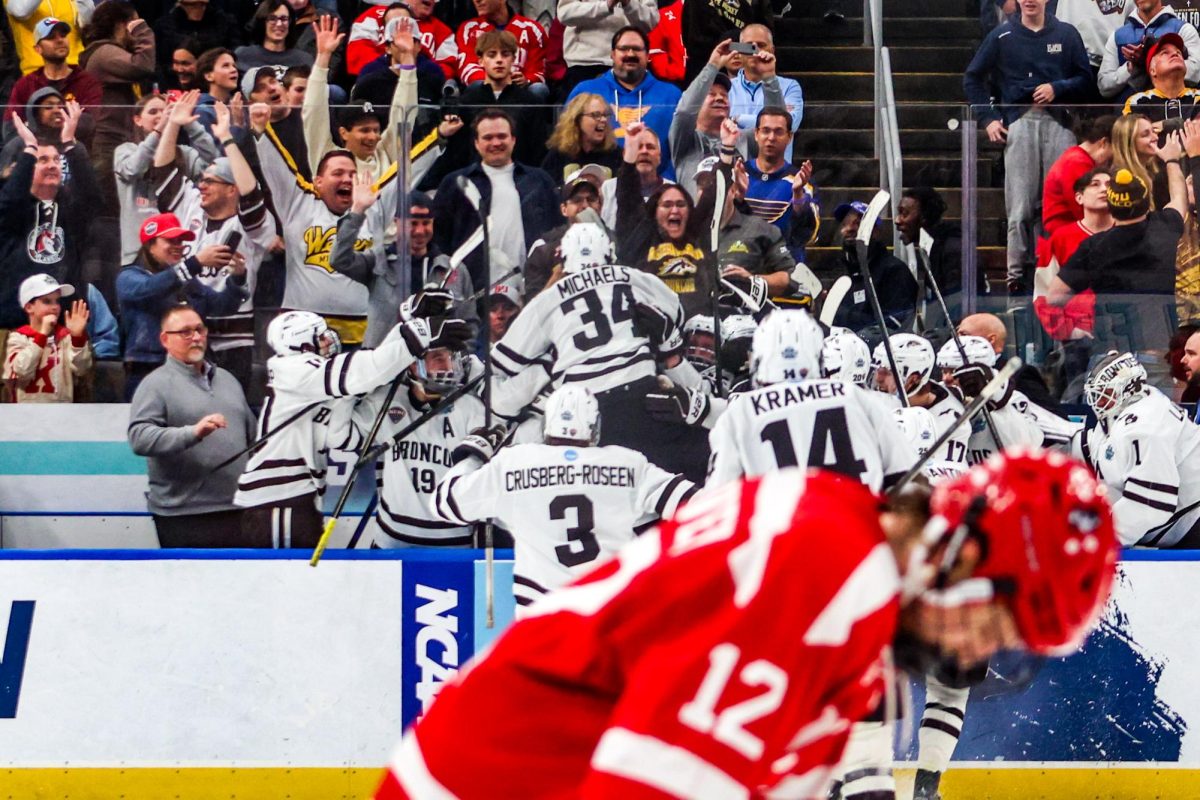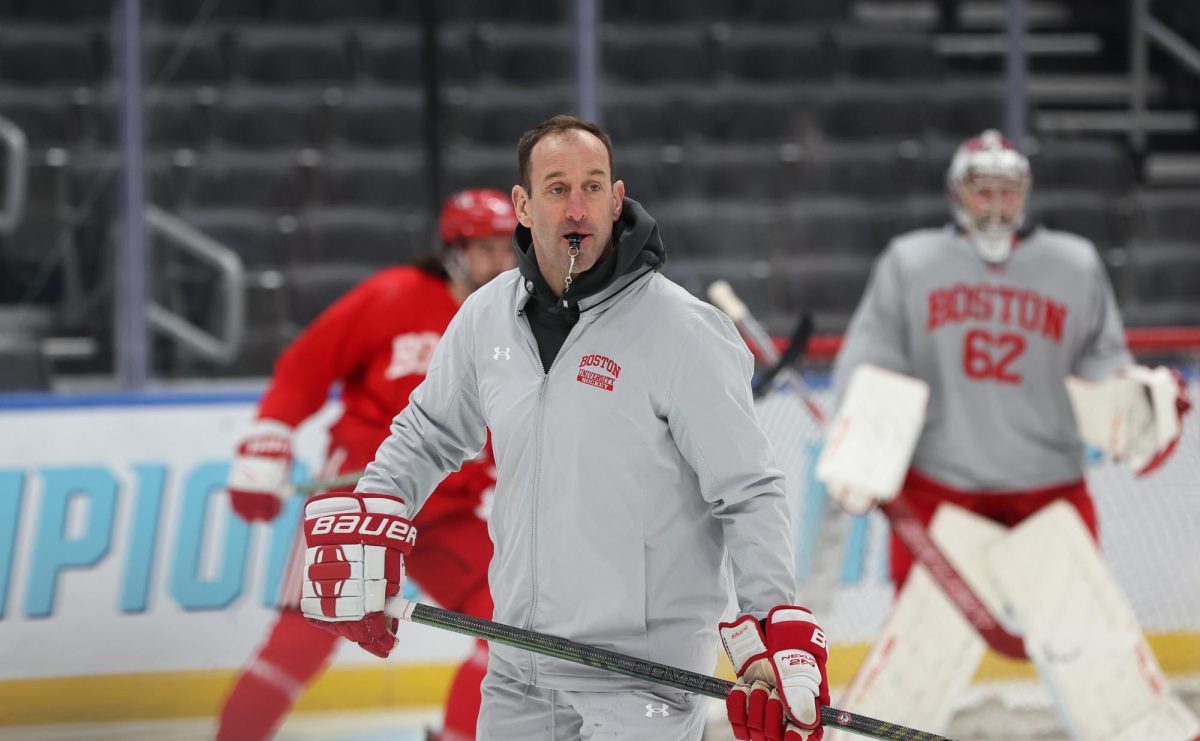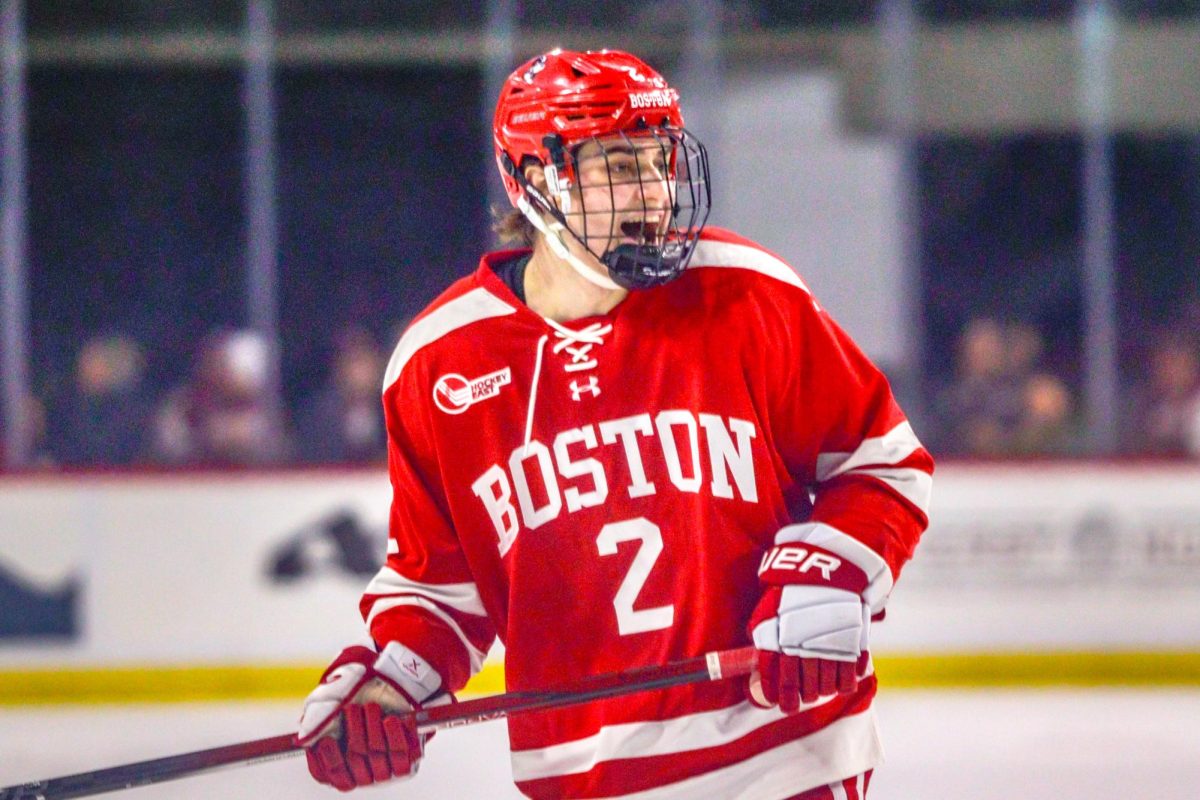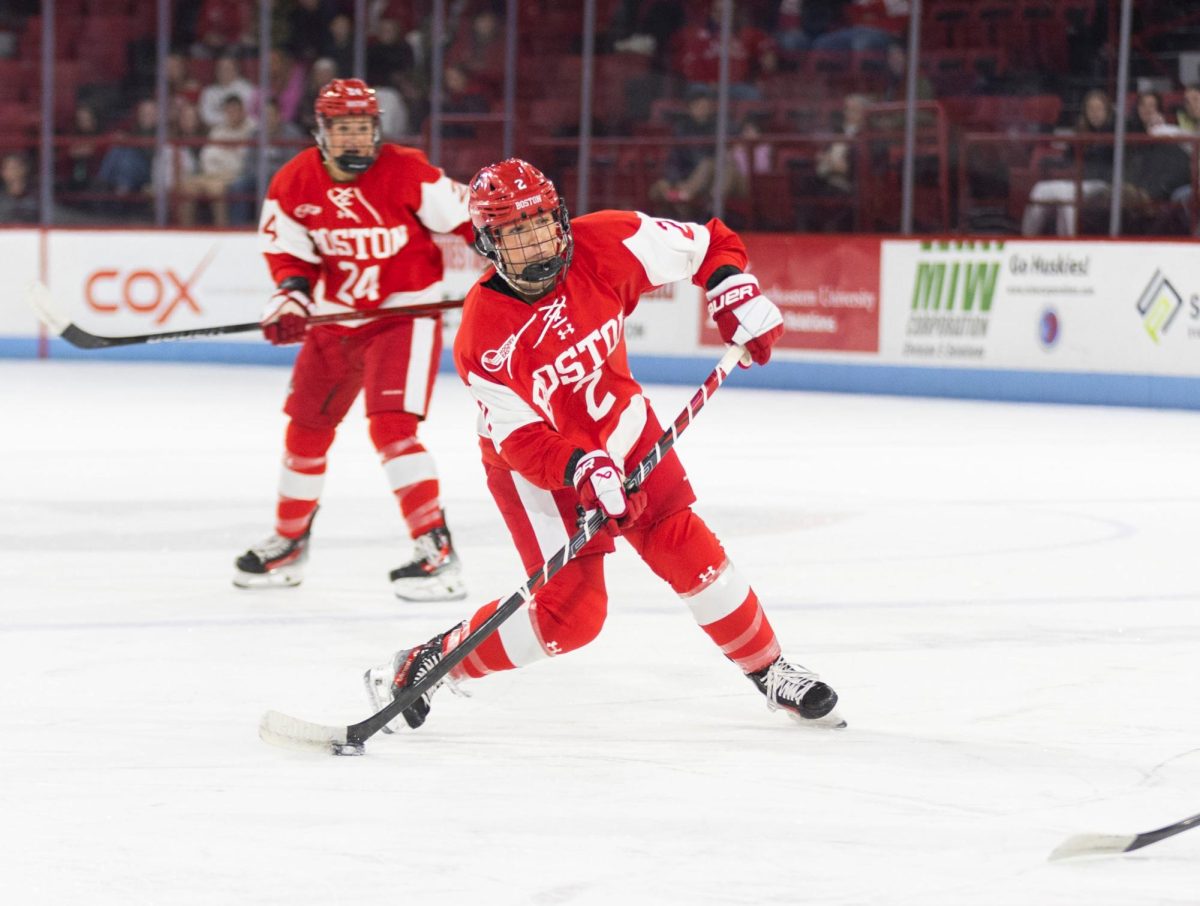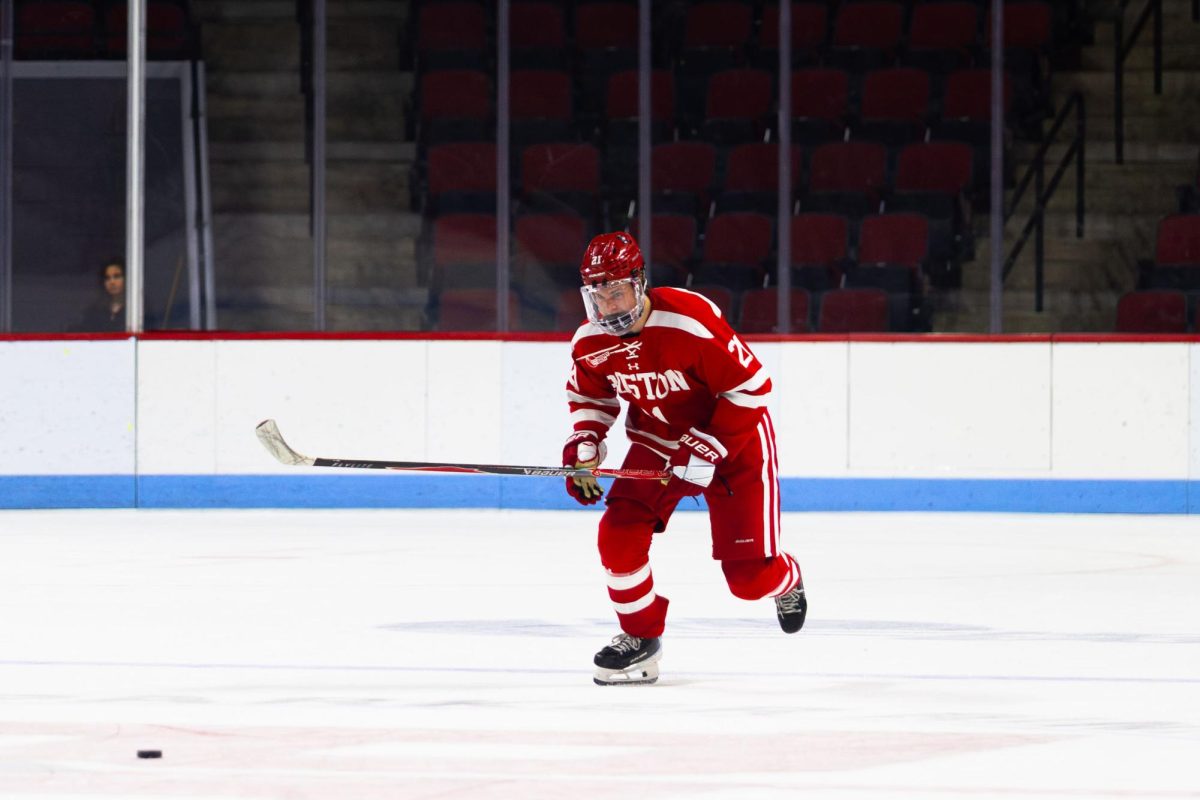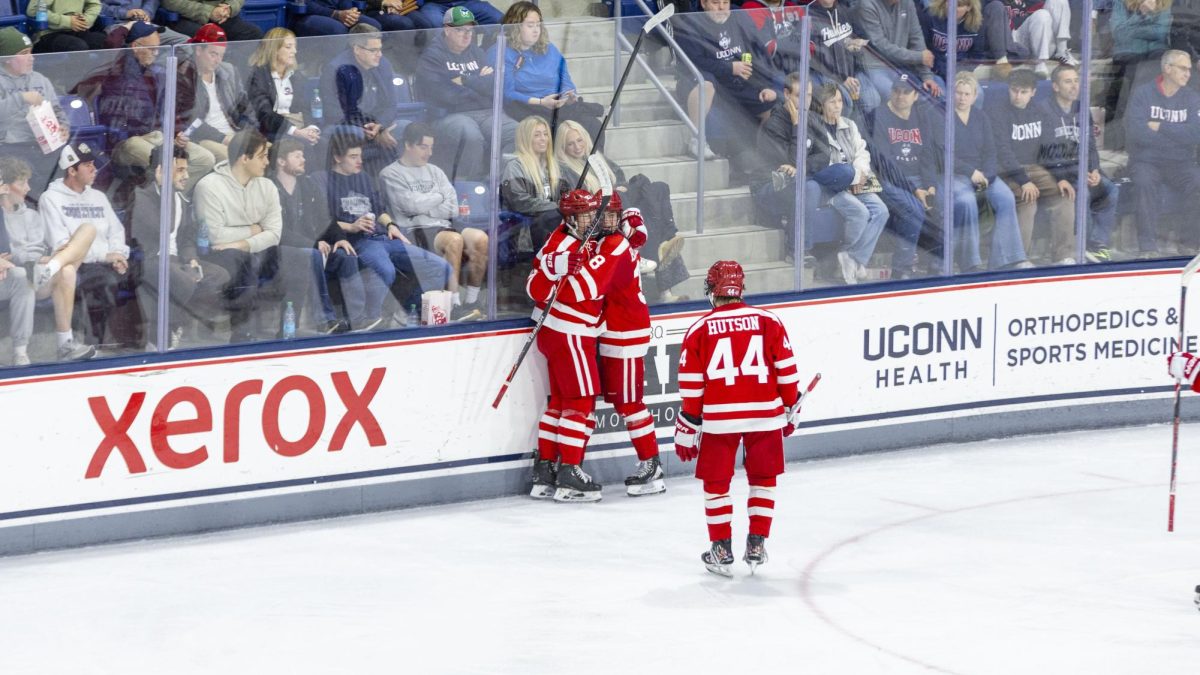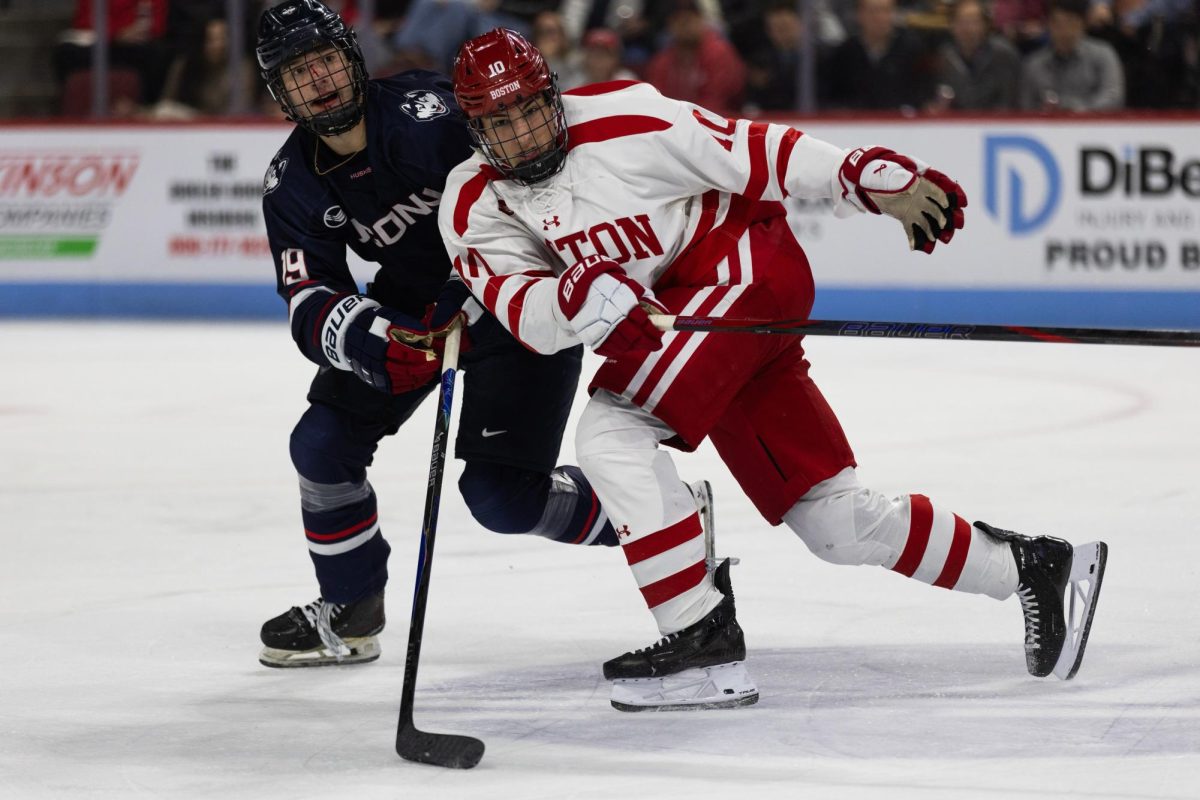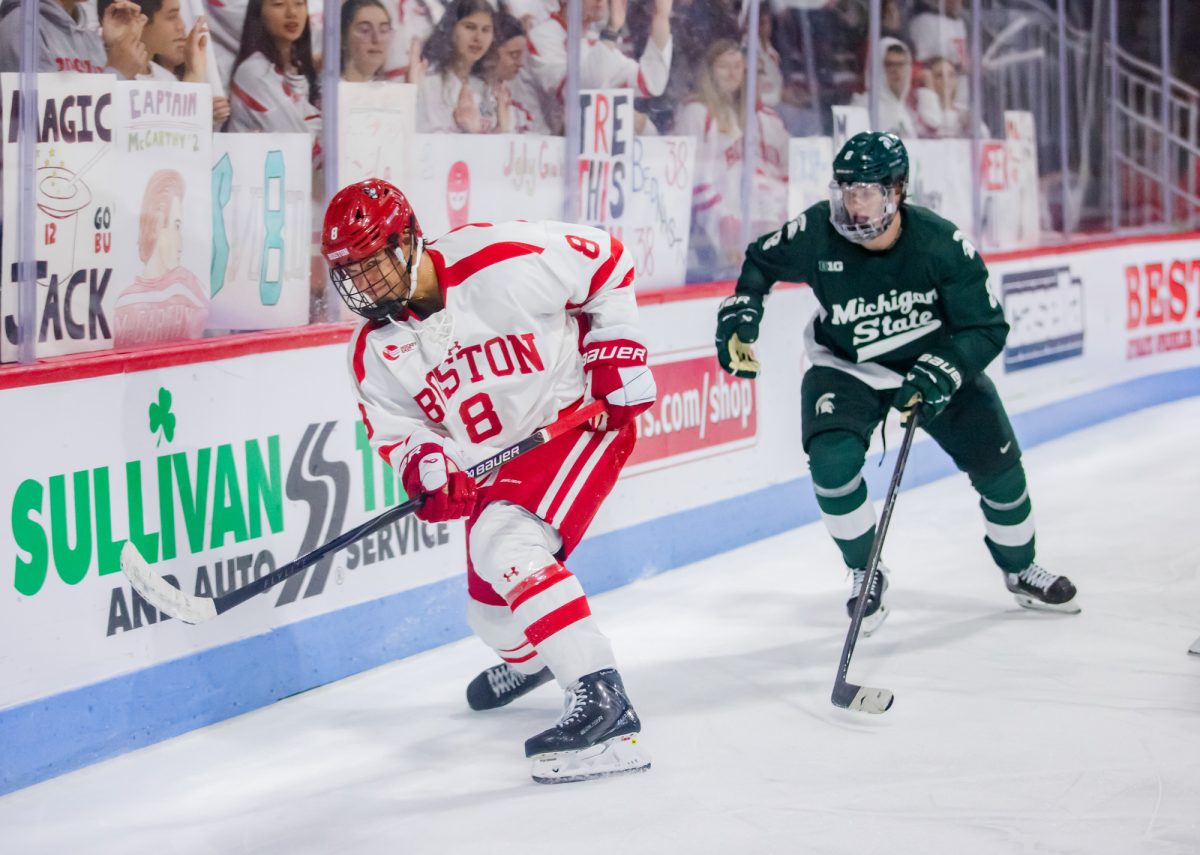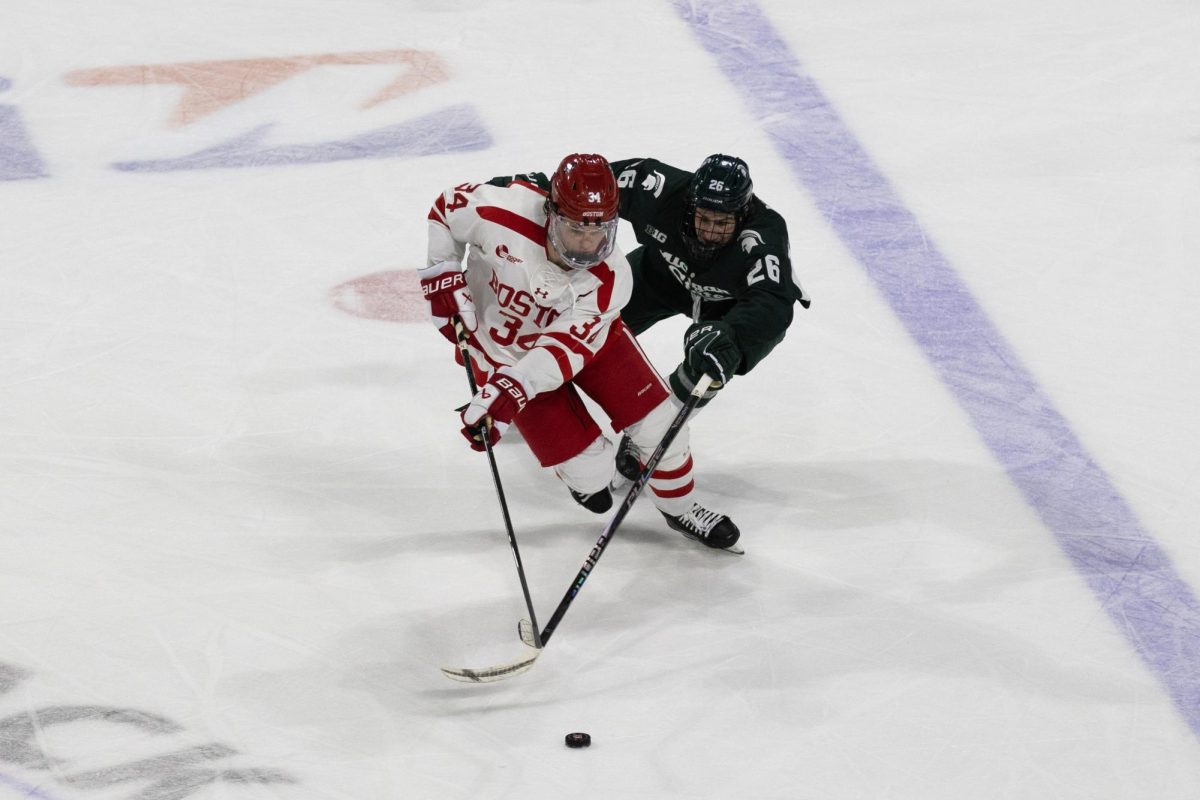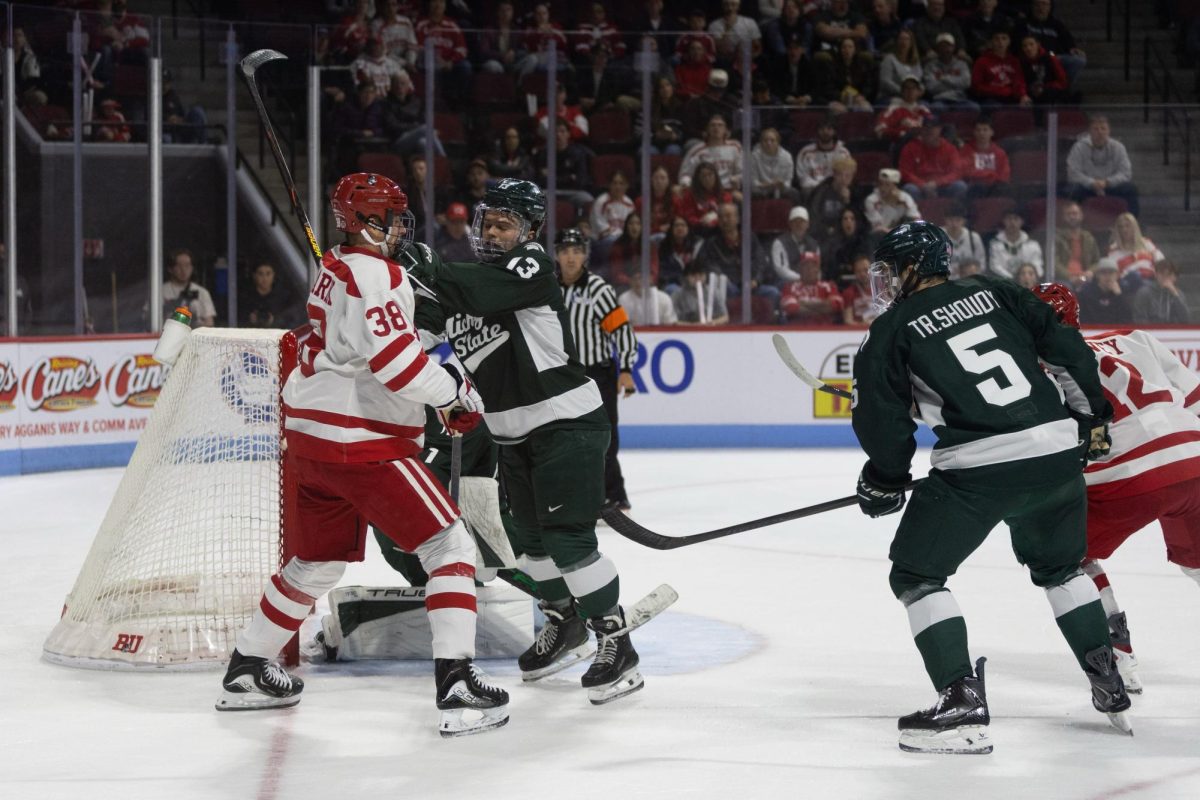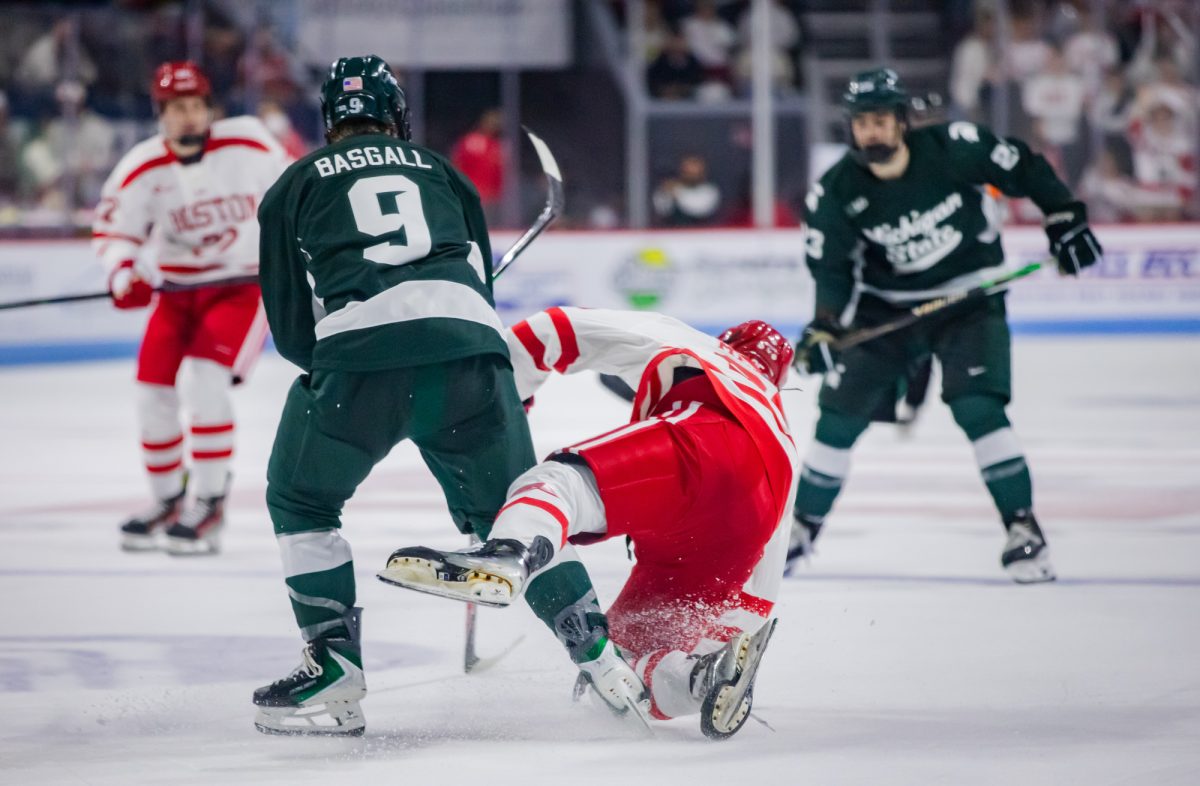As Colby Cohen rolled into the University of New Hampshire’s Whittemore Center, he felt a discomfort he had hardly ever experienced at a hockey rink. The former NHLer was nervous, green and out of place. And, he was convinced, bad at his job.
It was Feb. 1st, 2014, and Cohen was in town to be NESN’s color commentator for a Saturday night matchup between UNH and Notre Dame, his first game as an analyst in the booth. Looking back, he summed up his performance with two words:
“God awful.”
But in retrospect, the former Boston University hockey star sees the outing as a defining moment, considering he has parlayed it into a decade-long career as an analyst and podcaster.
Cohen skated at BU from 2007-10, a career highlighted by his overtime goal to deliver the Terriers a national championship in 2009. He went on to play for the Colorado Avalanche and Boston Bruins organizations.
But his post-playing resume is perhaps more impressive, including gigs as a college hockey analyst with NESN, CBS Sports and the Frozen Four on ESPN, plus stints with the Philadelphia Flyers (2017-21) and Chicago Blackhawks (2021-23). And he still has the better part of his media career ahead, since he’s only 35 years old.
“There’s only one color guy and one play-by-play guy so it’s not like there’s 100 spots for every game, so getting to be a part of the game still is an honor,” Cohen said.
Cohen grew into that responsibility with time, gaining confidence and ability as he called more games. But there was a learning curve. Some former NHL players — former Blackhawk Patrick Sharp, for instance — have fit seamlessly into the media world; Cohen took time to adjust.
Even when ESPN hired Cohen to broadcast the NCAA Cincinnati Regional in 2016, Cohen was still finding his voice as an analyst in a fast-paced hockey broadcast. And the fans let him hear it.
“I remember how much criticism I was facing on Twitter after the first time I did it,” Cohen said. I was thinking to myself at that point, maybe this isn’t for me, because I just felt like I sucked. I felt like people thought I sucked, and I thought they were right.”
So, he watched film. The then-ESPN producer who hired him, fellow BU alum John Vassallo, lifted around 25 clips of Cohen’s color commentary from his first few ESPN games, making a YouTube compilation with notes and tips.
Much of Vassallo’s advice had to do with pushing Cohen to explain how a key play began, rather than explaining the play itself.
“Hey, here’s where you describe the action pretty well, but you didn’t tell me why the play was effective,” Vassallo would write. “You said [X player] was great, but what does great mean? If he’s great, what makes him great? Skating ability? Is it his tenacity? Did he muscle the guy off the top?”
From there, the key was building up Cohen’s confidence. Vassallo, a veteran producer who also worked on college football during his time at ESPN, compared Cohen’s early years to those of successful college football analysts Kirk Herbstreit and Todd Blackledge, both of whom took reps to grow into their voice.
After Cohen’s first year at ESPN, Vassallo remembers getting a call from the NCAA with what he called “tentative feedback” on the analyst.
“Look, this guy attended all the meetings,” Vassallo replied. “He did all the work. We’re going to stick with him.”
In Cohen’s third year with ESPN, Vassallo’s faith paid off. Cohen settled into the role and solidified himself as a rising star. The NCAA called Vassallo again, gushing: “Oh my god, he’s great. Where did you find this guy?”
That success earned Cohen a spot as a between-the-benches analyst at the 2019 Frozen Four in Buffalo, alongside legendary ESPN analyst Barry Melrose, reporter Quint Kessenich and play-by-play man John Buccigross, who told the Boston Hockey Blog that “no [analyst] makes me more comfortable than Colby.”

Vassallo remembers the broadcast meetings with Cohen, Buccigross and Melrose that year, describing Cohen as “a kid in the candy shop.”
“He had this sh–ty grin on his face the entire time, like he couldn’t really believe he was there,” Vassallo said. “He still thought he would be on the other side of the table.”
He’s fully entrenched now, with five consecutive Frozen Fours of experience. In addition to that responsibility, plus some regular season college hockey games and NCAA regionals with ESPN, he hosts a podcast with fellow former NCAA hockey player Jonny Lazarus called “Morning Cuppa Hockey” on Daily Faceoff and also co-hosts a show with reporter Frankie Seravalli called “Daily Faceoff Live.”
But none of it would have happened without an unplanned run-in with NESN producer Steve Garabedian in the spring of 2013.
In the latter stages of his playing career, Cohen was rehabbing from an injury in Boston when he bumped into Garabedian at a 5K. The producer was around BU’s teams in the late 2000s, and he got to know Cohen and some of his teammates, especially on the national champion 2009 group.
Garabedian was scouting for former players to join NESN as analysts, and Cohen — who he remembered as talkative and articulate — seemed like a fit.
“He had a gift of gab that was natural, and he had conviction of what he was talking about,” Garabedian said. “So those are the things that I look for and I see a young guy like that in college and say, ‘Okay, keep tabs on him whenever he retires.’”
After some small talk, Garabedian floated the idea. Cohen shrugged dismissively. He had never considered a career in media, remaining focused on extending his playing days. He wondered what Garabedian saw in him for the role.
After thinking it over, he decided to give it a shot. He worked in the NESN studio for most of the 2013-14 season alongside Jamison Coyle, Jimmy Connelly and former BU player (1969-72) and UMass head coach (2000-12) Don “Toot” Cahoon. Things blossomed from there.
But he still reminisces on the early days of his broadcasting career. Like when he recently interviewed New Jersey Devils defenseman Brett Pesce on Morning Cuppa Hockey, realizing that Pesce skated for UNH during the Notre Dame game in 2014, Cohen’s nerve-racking debut at the Whittemore Center.
More than anything else, he’s just happy to remain part of the hockey world and a key part of the fan experience.
“I just feel like I get to have this impact on the game of hockey and the fan experience, and I think everything in hockey is truly for the fans,” Cohen said. “You play in front of the fans, the fans buy tickets, the fans buy merchandise, jerseys, whatever. I’m a part of their experience, and I don’t take it lightly. It’s a huge honor for me.”
